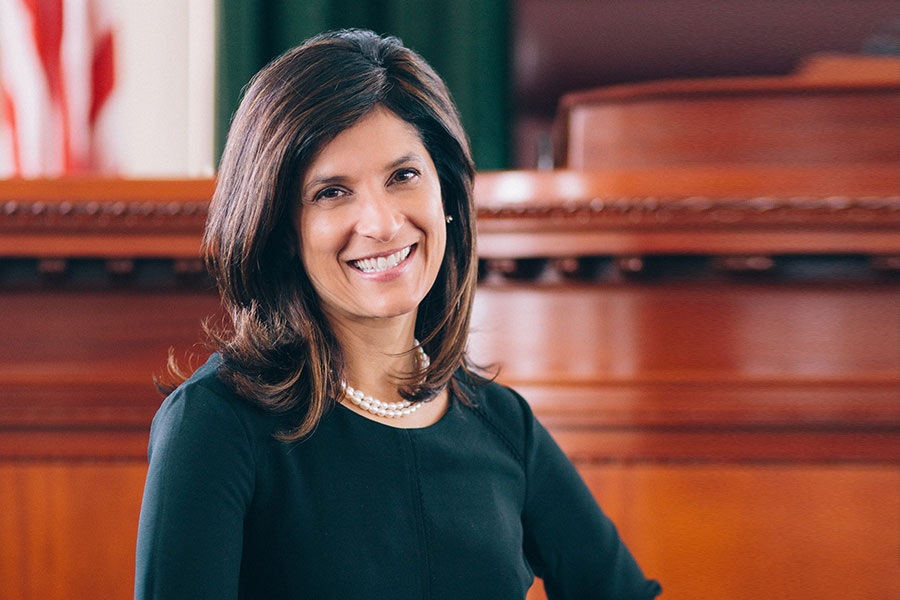
From coast to coast, Indian Americans are running for various congressional, state and local legislative and executive offices.
 Much of the focus of election coverage in the Indian and Indian American media has been about how both presidential nominees, President Donald Trump and former Vice President Joe Biden, have been courting Indian American voters. A less written about fact is there are dozens of Indian American candidates in this election cycle running for federal, state and local offices.
Much of the focus of election coverage in the Indian and Indian American media has been about how both presidential nominees, President Donald Trump and former Vice President Joe Biden, have been courting Indian American voters. A less written about fact is there are dozens of Indian American candidates in this election cycle running for federal, state and local offices.
If Joe Biden defeats President Donald Trump in November, Sen. Kamala Harris will be leaving the Senate to serve as the Vice President of the United States. But, that will probably not end the Indian American representation in the U.S. Senate next January,
Democrat Sara Gideon, who is half Indian American, like Harris, has an excellent chance of ousting incumbent Sen. Susan Collins in Maine. Gideon, Speaker of the Maine House of Representatives, currently leads Collins, one of the most endangered GOP senators by 3.7 percentage points in RealClearPolitics’ average of polls.
Gideon is not the only Indian American on the ballot for U.S. Senate this November. Republican Rik Mehta, a biotech entrepreneur and lawyer, is taking on Sen. Cory Booker in New Jersey. Mehta is a heavy underdog against Booker, a popular senator and former presidential candidate. His candidacy, however, indicates the rising importance of Indian Americans in the electoral process.
In the U.S. Congress, four Indian American members are seeking reelection — Reps. Ami Bera, Ro Khanna, Pramila Jayapal and Raja Krishnamurthi, They are expected to retain their seats.
READ: Indian American community rockets its way to relevance (September 4, 2020)
Two Democrats, Sri Kulkarni in Texas and Hiral Tipirneni, in Arizona, are in tight congressional races, each vying to become the first Indian American to get elected from their respective state.
Kulkarnia, a former U.S. diplomat, is running for the 22nd congressional district in Texas, which is an open seat in suburban Houston. Two years ago, he narrowly lost the district to the Republican incumbent, who is retiring from the House at the end of this year.
Tipirneni, a medical doctor, is similarly engaged in a competitive race in Arizona’s 6th district. Like Kulkarni, she made an unsuccessful run two years ago.
According to the Cook Political Report, an independent group that rates various races, both districts are toss-ups. This means that they are highly competitive contests in which any candidate can win.
For further proof of the coming of age of the Indian American community in electoral politics, one doesn’t need to go beyond Tipirneni’s district. The candidate the Mumbai-born doctor defeated to win her party’s nomination was also an Indian America, Anita Malik.
Read more columns by Frank F. Islam
At the state level, more than half a dozen Indian American state lawmakers across the country, are seeking re-election. They include: New York Sen. Kevin Thomas, Washington State Sen. Manka Dhingra, North Carolina Sen. Jay Chaudhuri, Vermont Sen. Kesha Ram, Washington State Rep. Vandana Slatter, Kentucky Rep. Nima Kulkarni, Michigan Rep. Padma Kuppa and Arizona Rep. Amish Shah. All these legislators are Democrats.
In Ohio, Republican Niraj Antani, who was first elected to the House of Representatives in 2014, at the age of 23, is running for the state senate, and is expected to win.
Additionally, more than half a dozen Indian Americans are seeking positions in various statehouses. Some of them, such as Jeremy Cooney, a candidate for the New York state senate, are veterans of previous races. Others are newcomers gunning for state legislatures for the first time. They include young and highly accomplished candidates like Rupande Mehta (New Jersey Senate), Nikil Saval (Pennsylvania Senate) and Jenifer Rajkumar (New York House).
Indian Americans are not just running for state and federal legislative offices. From coast to coast, they are also making beelines for various state and local executive offices, ranging from state agencies and county positions to mayoral offices and school boards.
For example, Duke University professor and former Obama economic advisor Ronnie Chatterji is running for treasurer in North Carolina. And, in Virginia, Republican Puneet Ahluwalia just announced his candidacy for the lieutenant governor.
READ MORE: Road to the White House
In this column last month, it was pointed out that the Indian American community has propelled its way to relevance in American politics over the past two decades. The representation of the community has increased at every level with each election cycle. The substantial number of Indian American candidates who are on the ballot this year is proof of progress that has been made.
Why does it matter that a much larger number of Indian Americans are holding and seeking political offices? What is its significance?
It is significant because in a democratic society participation and representation in the political process matters. It matters enormously in terms of the shaping and structuring of policies and programs and how they are implemented.
The Indian American community is one of the more recent immigrant groups in the United States. It is also one of the fastest growing communities. It is important for the community to participate in the political process and let its voices be heard.
Politicians make the decisions on a myriad number of issues such as war and peace at the national level to resource allocation for education and infrastructure maintenance and development at the local level. Therefore, it is important to be at the table where decisions are made. As the old saying goes, “If you are not at the table, you will be on the menu.”
Indian Americans need to be at the table not just for Indian Americans but for the future of America. They need to be at that table to contribute to the strengthening of the American democracy. They need to be at that table to contribute to the forming of a “more perfect union” which will have seats at the table for all regardless of race, religion or country of origin.
(Frank Islam is an entrepreneur and philanthropist based in the Washington, DC, area.)



